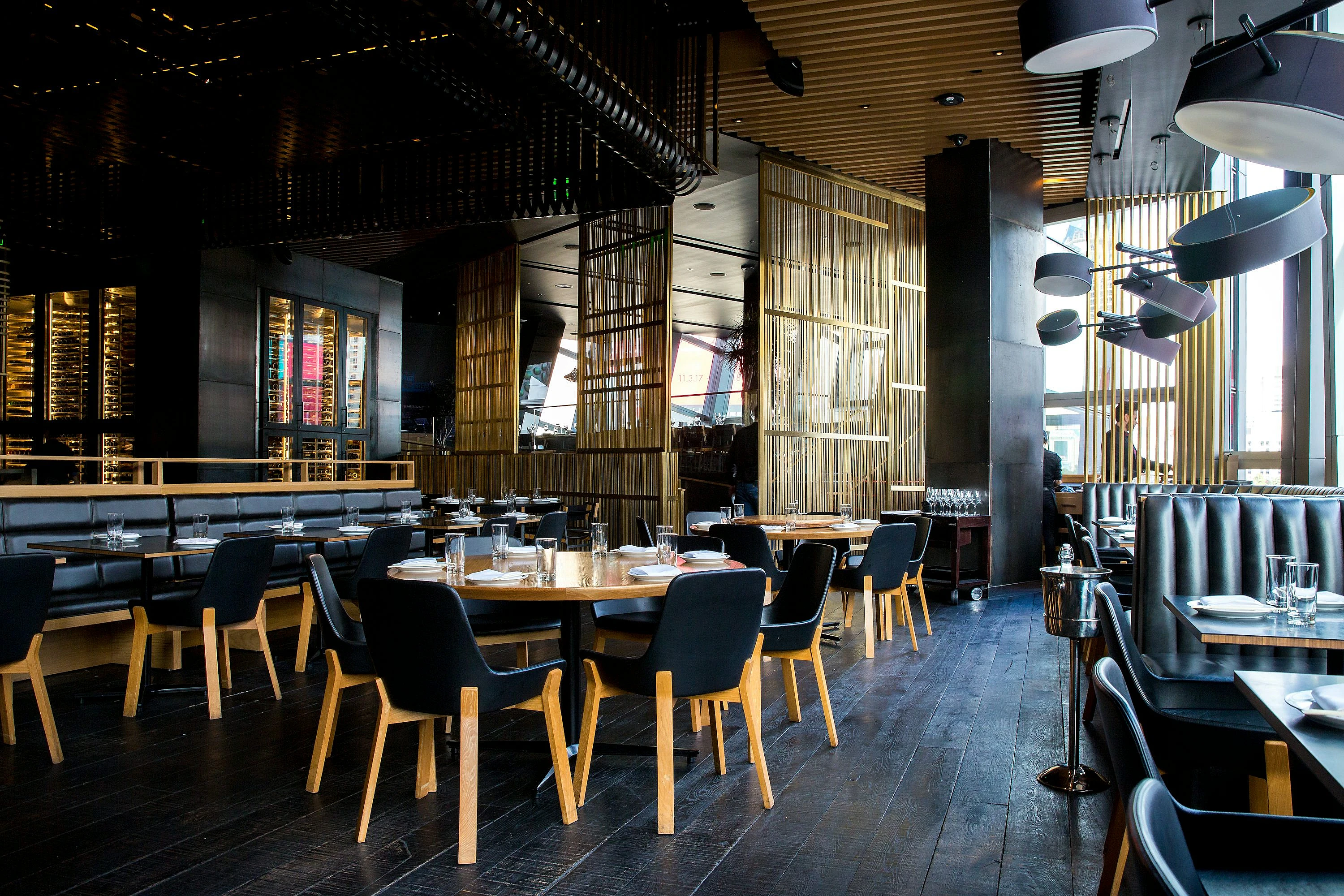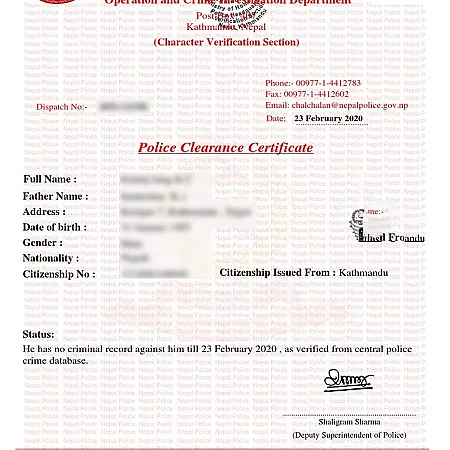Opening a restaurant in Nepal can be rewarding for aspiring entrepreneurs. The food service industry has been experiencing steady growth, with increasing opportunities for both local and international cuisines. This comprehensive guide will walk you through every step of the restaurant registration process in Nepal.
Table of Contents
-
Legal Framework for Restaurant Registration
-
Types of Restaurant Licenses Required
-
Essential Documents Checklist
-
Step-by-Step Registration Process
-
Registration Costs and Timeline
-
Government Authorities Involved
-
Post-Registration Compliance
-
Common Challenges and Solutions
-
Unique Tips for Success
-
Frequently Asked Questions
Legal Framework for Restaurant Registration {#legal-framework}
Restaurant registration in Nepal is governed by multiple laws that ensure food safety, business legitimacy, and consumer protection. Understanding these regulations is crucial for successful restaurant establishment.
Primary Laws Governing Restaurant Operations
|
Law |
Year |
Key Areas |
|---|---|---|
|
Company Act |
2063 (2006) |
Business registration and incorporation |
|
Food Act |
2023 (1966) |
Food safety and quality standards |
|
Local Government Operation Act |
2074 (2017) |
Municipal licensing requirements |
|
Industrial Enterprises Act |
2076 (2020) |
Industrial operation framework |
|
Labor Act |
2074 (2017) |
Employee rights and workplace safety |
|
Consumer Protection Act |
2075 (2018) |
Consumer rights protection |
|
Value Added Tax Act |
2052 (1996) |
VAT registration and compliance |
|
Tourism Act |
2035 (1978) |
Tourism-related business regulation |
Restaurant registration in Nepal involves a series of legal and administrative procedures to establish and operate a food service business, ensuring compliance with health, safety, and quality standards.
Types of Restaurant Licenses Required {#license-types}
Different types of restaurants require specific licenses based on their operations, location, and services offered. Understanding which licenses apply to your restaurant concept is essential for proper registration.
Core Licenses for All Restaurants
1. Business Operating License
-
Issued by: Local municipality
-
Purpose: Legal permission to operate business
-
Validity: Annual renewal required
-
Cost: NPR 2,000 - NPR 10,000
2. Food License
-
Issued by: Department of Food Technology and Quality Control
-
Purpose: Food safety compliance
-
Validity: Annual renewal required
-
Cost: Approximately NPR 5,000
3. PAN and VAT Registration
-
Issued by: Inland Revenue Department
-
Purpose: Tax compliance
-
Cost: Free registration
Specialized Licenses
|
License Type |
Authority |
When Required |
Cost Range |
|---|---|---|---|
|
Alcohol License |
District Administration Office |
Serving alcoholic beverages |
NPR 50,000 - 100,000 |
|
Tourism License |
Nepal Tourism Board |
Tourist area restaurants |
NPR 5,000 - 10,000 |
|
Entertainment License |
Local Authority |
Live music/performances |
Variable |
|
Environmental Clearance |
Department of Environment |
Large establishments |
NPR 15,000 - 50,000 |
Essential Documents Checklist {#documents-checklist}
Proper documentation is crucial for smooth restaurant registration. Missing documents can cause significant delays in the approval process.
Company Registration Documents
-
[ ] Memorandum and Articles of Association
-
[ ] Citizenship certificates of all promoters/partners
-
[ ] Partnership deed (for partnership firms)
-
[ ] Bank statements showing capital investment
-
[ ] Completed company registration forms
Property and Location Documents
-
[ ] Lease agreement or property ownership documents
-
[ ] No Objection Certificate from landlord (for rented premises)
-
[ ] Building completion certificate
-
[ ] Ward office recommendation letter
-
[ ] Property tax clearance certificate
Health and Safety Documents
-
[ ] Fire safety clearance certificate
-
[ ] Health and sanitation certificate
-
[ ] Food handler's health certificates for all staff
-
[ ] Environmental impact assessment (if applicable)
-
[ ] Building safety inspection report
Operational Documents
-
[ ] Detailed menu list with prices
-
[ ] Interior and exterior photographs of premises
-
[ ] Equipment list and layout plan
-
[ ] Staff employment contracts
-
[ ] Insurance policy documents
Step-by-Step Registration Process {#registration-process}
The restaurant registration process involves multiple steps that must be completed in a specific sequence to ensure compliance with all regulations.
Phase 1: Business Structure Setup (Weeks 1-2)
Step 1: Choose Business Structure Decide between sole proprietorship, partnership, or private limited company based on your investment capacity and business goals.
Step 2: Company Registration Register your business with the Office of Company Registrar by submitting required documents and paying registration fees.
Step 3: Tax Registration Obtain PAN and VAT registration from the Inland Revenue Department. This process has been streamlined and can be completed online.
Phase 2: Location and Permits (Weeks 3-6)
Step 4: Secure Premises Finalize restaurant location and ensure all property documents are in order. The location must comply with zoning regulations for commercial food service.
Step 5: Municipal License Application Apply for business operating license from the local municipality with all required documents and fees.
Step 6: Fire Safety Clearance Obtain fire safety approval from the local fire department by ensuring compliance with safety standards.
Phase 3: Food Service Permits (Weeks 7-10)
Step 7: Food License Application Submit application to the Department of Food Technology and Quality Control with detailed menu, premises photos, and health certificates.
Step 8: Health Department Approval Secure health and sanitation certificate from local health authorities after premises inspection.
Step 9: Staff Health Certificates Ensure all food-handling staff obtain health certificates from authorized medical facilities.
Phase 4: Specialized Licenses (Weeks 11-16)
Step 10: Alcohol License (if applicable) Apply for liquor license from District Administration Office if planning to serve alcoholic beverages.
Step 11: Tourism License (if applicable) Obtain tourism license from Nepal Tourism Board for restaurants in tourist areas.
Step 12: Final Inspections Complete all required inspections by relevant authorities and address any compliance issues.
Registration Costs and Timeline {#costs-timeline}
Understanding the financial investment and time requirements helps in proper planning and budgeting for restaurant establishment.
Cost Breakdown
|
Component |
Cost Range (NPR) |
Notes |
|---|---|---|
|
Company Registration |
9,500 - 22,000 |
Based on authorized capital |
|
Business Operating License |
2,000 - 10,000 |
Varies by municipality |
|
Food License |
5,000 |
Standard fee |
|
Health & Sanitation Clearance |
1,000 - 3,000 |
Annual requirement |
|
Fire Safety Clearance |
2,000 - 5,000 |
Depends on premises size |
|
Alcohol License |
50,000 - 100,000 |
If serving alcohol |
|
Environmental Clearance |
15,000 - 50,000 |
For larger establishments |
|
Legal & Consultancy Fees |
50,000 - 200,000 |
Professional assistance |
|
Total Estimated Cost |
134,500 - 400,000 |
Excluding alcohol license |
Timeline Breakdown
|
Process |
Duration |
Critical Factors |
|---|---|---|
|
Company Registration |
1-2 weeks |
Document completeness |
|
Tax Registration |
1 week |
Online process available |
|
Municipal License |
2-4 weeks |
Local efficiency varies |
|
Food License |
3-4 weeks |
Inspection scheduling |
|
Health Clearance |
1-2 weeks |
Premises readiness |
|
Fire Safety |
1-3 weeks |
Safety compliance level |
|
Alcohol License |
2-4 weeks |
Additional scrutiny |
|
Total Timeline |
2-4 months |
With proper preparation |
Government Authorities Involved {#authorities}
Multiple government bodies play roles in restaurant registration, each with specific responsibilities and requirements.
Primary Registration Authorities
Office of Company Registrar
-
Role: Business incorporation and registration
-
Location: Kathmandu and regional offices
-
Services: Company registration, name reservation, document verification
Inland Revenue Department
-
Role: Tax registration and compliance
-
Services: PAN/VAT registration, tax clearance certificates
-
Online Portal: Available for streamlined processing
Local Municipality
-
Role: Business operating license issuance
-
Services: Local business permits, zoning compliance verification
-
Renewal: Annual requirement
Specialized Licensing Bodies
|
Authority |
Primary Function |
Key Services |
|---|---|---|
|
Department of Food Technology and Quality Control |
Food safety regulation |
Food licenses, quality inspections |
|
District Administration Office |
Alcohol licensing |
Liquor permits, security clearances |
|
Nepal Tourism Board |
Tourism regulation |
Tourism licenses for tourist areas |
|
Department of Environment |
Environmental compliance |
Impact assessments, clearances |
|
Local Health Authority |
Public health oversight |
Sanitation certificates, health inspections |
|
Fire Department |
Safety compliance |
Fire safety clearances, emergency planning |
Post-Registration Compliance {#compliance}
Maintaining compliance after registration is crucial for continued operation and avoiding penalties or license revocation.
Annual Renewal Requirements
Mandatory Annual Renewals:
-
Business operating license with municipality
-
Food license with Department of Food Technology and Quality Control
-
Fire safety certificate with local fire department
-
Health and sanitation certificate with health authority
-
Alcohol license with District Administration Office (if applicable)
Ongoing Compliance Obligations
Financial Compliance:
-
Monthly VAT return filing
-
Annual income tax return submission
-
Social Security Fund contributions for employees
-
Proper maintenance of financial records and books of accounts
Operational Compliance:
-
Regular health inspections by local authorities
-
Maintenance of food safety standards
-
Staff health certificate renewals
-
Proper waste management and disposal
-
Consumer protection law adherence
Record Keeping Requirements
Restaurants must maintain comprehensive records including:
-
Daily sales and purchase records
-
Employee attendance and payroll records
-
Tax payment receipts and returns
-
License renewal documentation
-
Inspection reports and compliance certificates
-
Customer complaint registers
-
Inventory management records
Common Challenges and Solutions {#challenges}
Understanding potential obstacles in the registration process helps in better preparation and smoother execution.
Bureaucratic Challenges
Challenge: Processing delays due to bureaucratic inefficiencies Solution: Submit complete documentation, follow up regularly, consider professional assistance
Challenge: Inconsistent information from different authorities Solution: Verify requirements directly with relevant departments, maintain written communication
Challenge: Multiple office visits and complex procedures Solution: Plan visits strategically, prepare all documents in advance, use available online services
Financial Challenges
Challenge: High upfront costs for licenses and compliance Solution: Budget adequately, explore phased licensing approach, consider financing options
Challenge: Unexpected additional costs during process Solution: Maintain contingency budget, research all potential fees beforehand
Technical Challenges
|
Challenge |
Impact |
Solution |
|---|---|---|
|
Meeting fire safety standards |
Delayed approval |
Consult fire safety experts early |
|
Health department compliance |
License rejection |
Invest in proper kitchen equipment |
|
Environmental requirements |
Additional costs |
Conduct preliminary environmental assessment |
|
Zoning restrictions |
Location changes |
Verify zoning before finalizing premises |
Unique Tips for Success {#success-tips}
These insider strategies can give your restaurant registration process a competitive advantage and ensure faster approval.
Strategic Location Selection
Zoning Optimization: Choose locations pre-approved for commercial food service to avoid zoning complications. Research municipal master plans to identify upcoming commercial zones.
Infrastructure Readiness: Select premises with existing fire safety systems, proper drainage, and adequate electrical capacity to minimize modification costs.
Document Preparation Excellence
Digital Documentation: Maintain digital copies of all documents with cloud backup. Create a comprehensive folder system for easy access during inspections.
Legal Verification: Have all documents reviewed by a qualified legal professional before submission to prevent rejection due to technical errors.
Relationship Building
Authority Engagement: Establish positive relationships with key officials in licensing departments through professional interaction and timely submissions.
Professional Networks: Connect with other restaurant owners and industry associations for shared experiences and referrals.
Technology Integration
Online Services Utilization: Maximize use of available online registration and renewal services to reduce processing time and costs.
Compliance Tracking: Implement digital systems to track renewal dates, inspection schedules, and compliance requirements.
Financial Planning
Phased Investment: Consider soft opening with basic licenses while awaiting specialized permits to generate early revenue.
Cost Optimization: Bundle related services and negotiate with service providers for comprehensive packages.
Frequently Asked Questions {#faqs}
Q1: What licenses are required to open a restaurant in Nepal?
To open a restaurant in Nepal, you need several mandatory licenses:
-
Business Operating License from local municipality
-
Food License from Department of Food Technology and Quality Control
-
PAN and VAT registration from Inland Revenue Department
-
Alcohol License from District Administration Office (if serving alcohol)
-
Tourism License from Nepal Tourism Board (for tourist areas)
-
Fire Safety Clearance from local fire department
-
Health and Sanitation Certificate from health authority
Each license serves a specific regulatory purpose and must be obtained from the respective authority with proper documentation and fees.
Q2: How long does restaurant registration take in Nepal?
The restaurant registration process in Nepal typically takes 2 to 4 months. The timeline breakdown includes:
-
Company registration: 1-2 weeks
-
PAN and VAT registration: 1 week
-
Business operating license: 2-4 weeks
-
Food license: 3-4 weeks
-
Health clearance: 1-2 weeks
-
Fire safety clearance: 1-3 weeks
-
Alcohol license (if needed): 2-4 weeks
The actual duration depends on document completeness, authority efficiency, and any compliance issues that arise during inspections.
Q3: What are the total costs for restaurant registration?
Restaurant registration costs in Nepal vary based on business size and license types required:
Basic Registration Costs:
-
Company registration: NPR 9,500 - 22,000
-
Business license: NPR 2,000 - 10,000
-
Food license: NPR 5,000
-
Health clearance: NPR 1,000 - 3,000
-
Fire safety: NPR 2,000 - 5,000
Additional Costs:
-
Alcohol license: NPR 50,000 - 100,000
-
Environmental clearance: NPR 15,000 - 50,000
-
Legal fees: NPR 50,000 - 200,000
Total estimated range: NPR 134,500 - 400,000 (excluding alcohol licensing)
Q4: Can foreigners register restaurants in Nepal?
Yes, foreigners can register restaurants in Nepal with specific conditions:
-
Minimum investment of NPR 50 million required
-
Must obtain approval from Department of Industry
-
Cannot own land - must lease premises
-
Joint ventures with Nepali partners often preferred
-
Work permits required for foreign staff
-
Profit repatriation subject to Nepal Rastra Bank regulations
-
Must comply with Foreign Investment and Technology Transfer Act 2075 (2019)
Foreign investors should consult with legal experts familiar with foreign investment regulations.
Q5: Do restaurant licenses need annual renewal?
Yes, most restaurant licenses require annual renewal:
-
Business Operating License - yearly renewal with municipality
-
Food License - annual renewal with Department of Food Technology and Quality Control
-
Fire Safety Certificate - yearly renewal with fire department
-
Health and Sanitation Certificate - annual renewal with health authority
-
Alcohol License - yearly renewal with District Administration Office
-
Tourism License - annual renewal with Nepal Tourism Board
Renewal involves submitting updated documents, passing inspections, and paying renewal fees. Late renewals may incur penalties.
Q6: What health regulations apply to restaurants?
Restaurants must comply with comprehensive health and safety regulations:
Food Safety Requirements:
-
Compliance with Food Act 2023 (1966) standards
-
Proper food storage at correct temperatures
-
Hygienic food preparation and handling
-
Clean kitchen and dining environments
-
Safe drinking water supply
Staff Requirements:
-
Valid health certificates for all food handlers
-
Regular health check-ups for kitchen staff
-
Food safety training for employees
-
Proper hygiene practices and uniforms
Facility Standards:
-
Adequate ventilation and lighting
-
Proper waste management systems
-
Pest control measures
-
Clean restroom facilities
-
Food storage and refrigeration systems
Regular inspections ensure ongoing compliance with these standards.
Q7: Is environmental clearance needed for all restaurants?
Environmental clearance requirements depend on restaurant size and location:
Clearance Required For:
-
Large-scale restaurants (typically over certain square footage)
-
Restaurants in environmentally sensitive areas
-
Establishments with significant waste generation
-
Restaurants near water bodies or protected areas
Clearance Process:
-
Environmental Impact Assessment (EIA) submission
-
Site inspection by environmental officials
-
Compliance with waste management standards
-
Payment of clearance fees (NPR 15,000 - 50,000)
Small restaurants in regular commercial areas typically don't require environmental clearance, but it's advisable to check with local authorities.
Q8: What fire safety requirements must restaurants meet?
Fire safety compliance is mandatory for all restaurants:
Basic Requirements:
-
Adequate fire extinguisher placement
-
Emergency exit signs and lighting
-
Proper electrical wiring and safety systems
-
Kitchen fire suppression systems
-
Staff fire safety training
Inspection Process:
-
Application submission with premises layout
-
On-site inspection by fire department officials
-
Correction of any identified safety issues
-
Certificate issuance upon compliance
-
Annual renewal required
Costs: NPR 2,000 - 5,000 depending on premises size and required safety measures.
Q9: How to handle restaurant registration delays?
Registration delays can be managed through proactive strategies:
Prevention Strategies:
-
Submit complete documentation from the start
-
Verify all requirements with respective authorities
-
Engage professional consultants for complex cases
-
Maintain regular follow-up with processing offices
When Delays Occur:
-
Document all interactions with authorities
-
Request written explanations for delays
-
Consider escalating through proper channels
-
Maintain professional relationships with officials
-
Be prepared to address compliance issues quickly
Professional Assistance: Consider hiring legal experts familiar with restaurant registration to navigate complex procedures efficiently.
Q10: What are the penalties for operating without proper licenses?
Operating restaurants without proper licenses carries serious consequences:
Legal Penalties:
-
Business closure orders from authorities
-
Financial penalties ranging from NPR 10,000 - 100,000
-
Criminal charges under relevant acts
-
Seizure of restaurant equipment and inventory
Business Impact:
-
Loss of customer trust and reputation
-
Inability to access formal banking services
-
Exclusion from government contracts and programs
-
Difficulty in business expansion or partnerships
Long-term Consequences:
-
Blacklisting from future license applications
-
Higher scrutiny in future compliance checks
-
Legal disputes with suppliers and partners
-
Tax evasion charges and additional penalties
It's always advisable to complete proper registration before commencing operations.
Conclusion
Restaurant registration in Nepal requires careful planning, proper documentation, and compliance with multiple regulatory requirements. While the process may seem complex, following this comprehensive guide ensures successful registration and legal operation of your restaurant business.
The key to success lies in thorough preparation, understanding all requirements, and maintaining ongoing compliance with regulations. Consider engaging professional consultants for complex cases to ensure smooth processing and avoid costly delays.
With proper registration, your restaurant gains legal recognition, access to formal financial services, and the credibility needed for long-term business success in Nepal's growing food service industry.
For professional assistance with restaurant registration in Nepal, consult with qualified legal experts who specialize in business registration and licensing procedures.







-thumb.webp)

-thumb.webp)